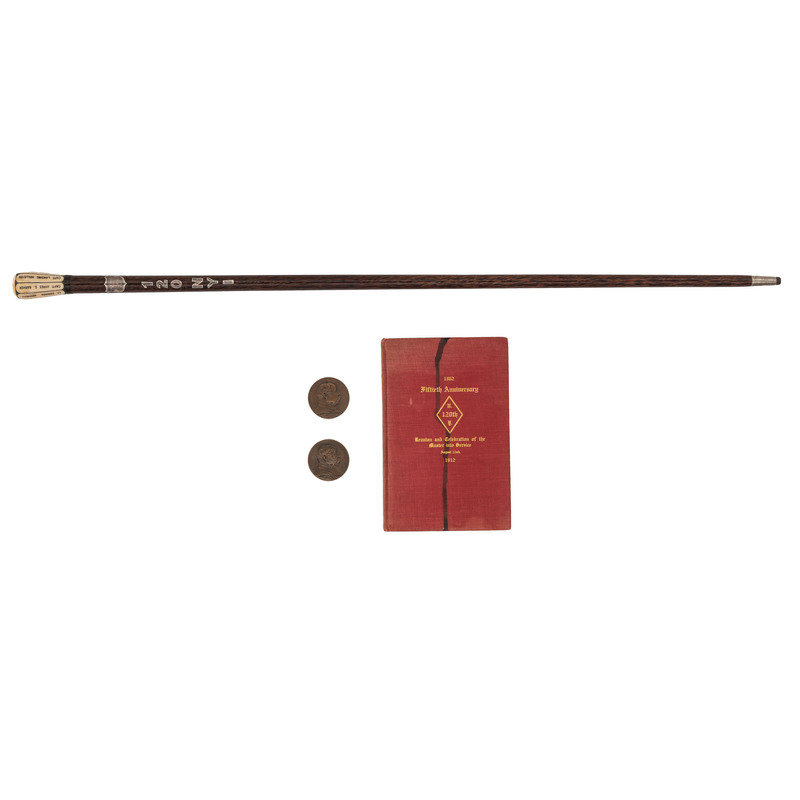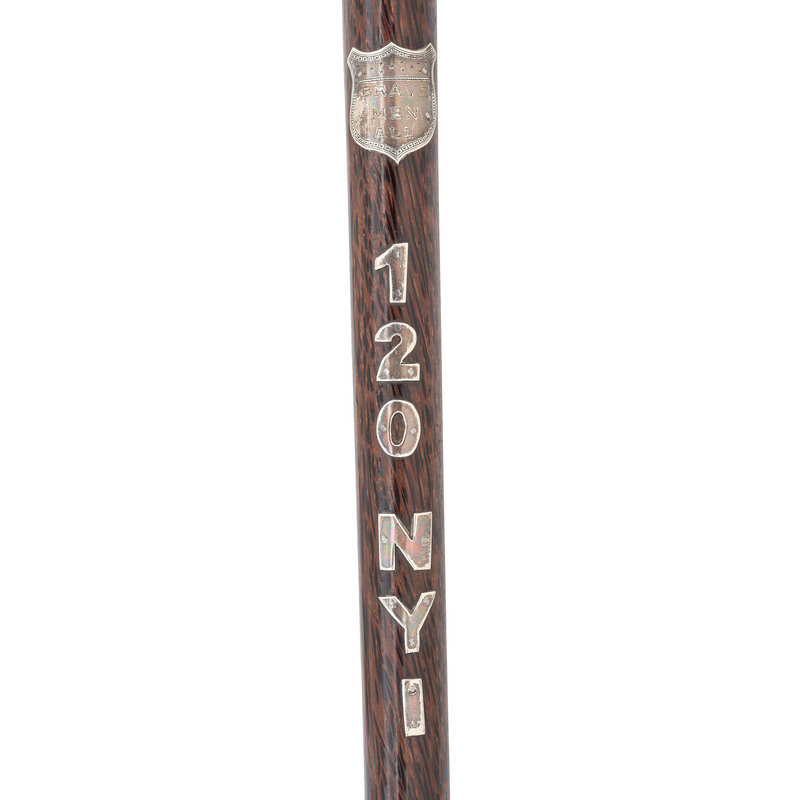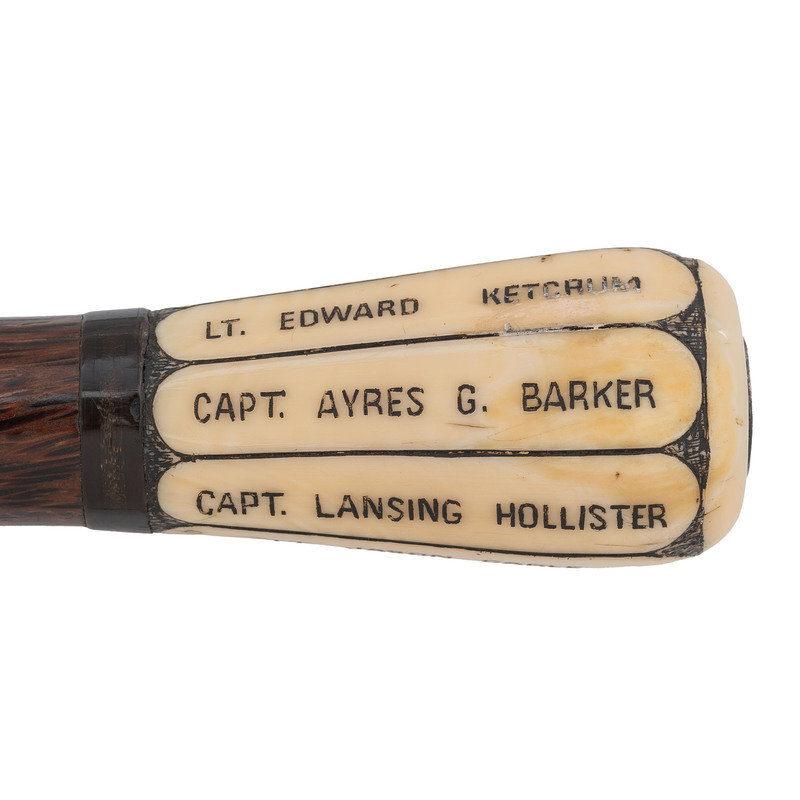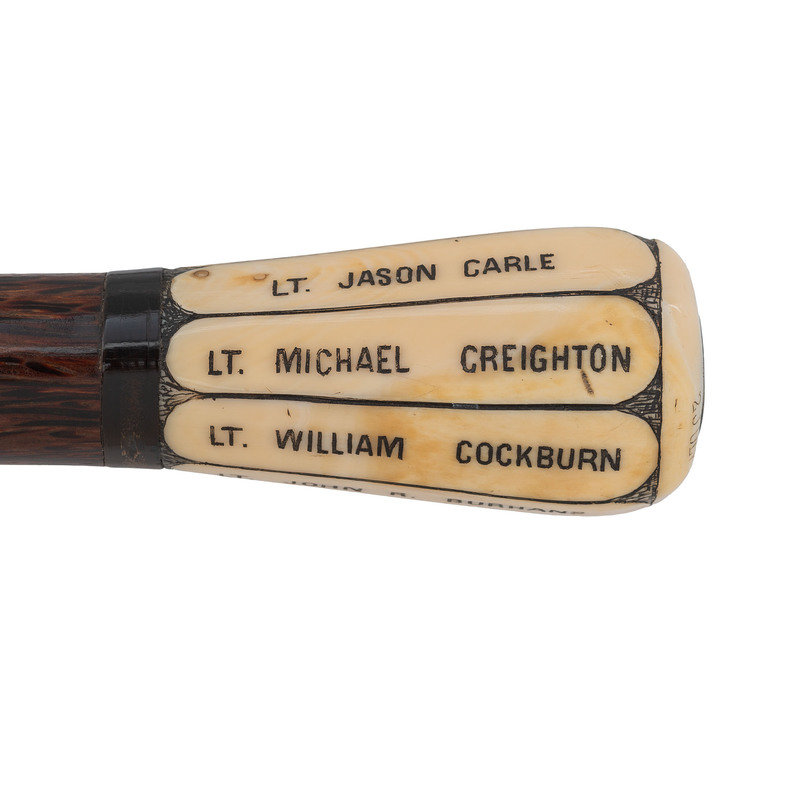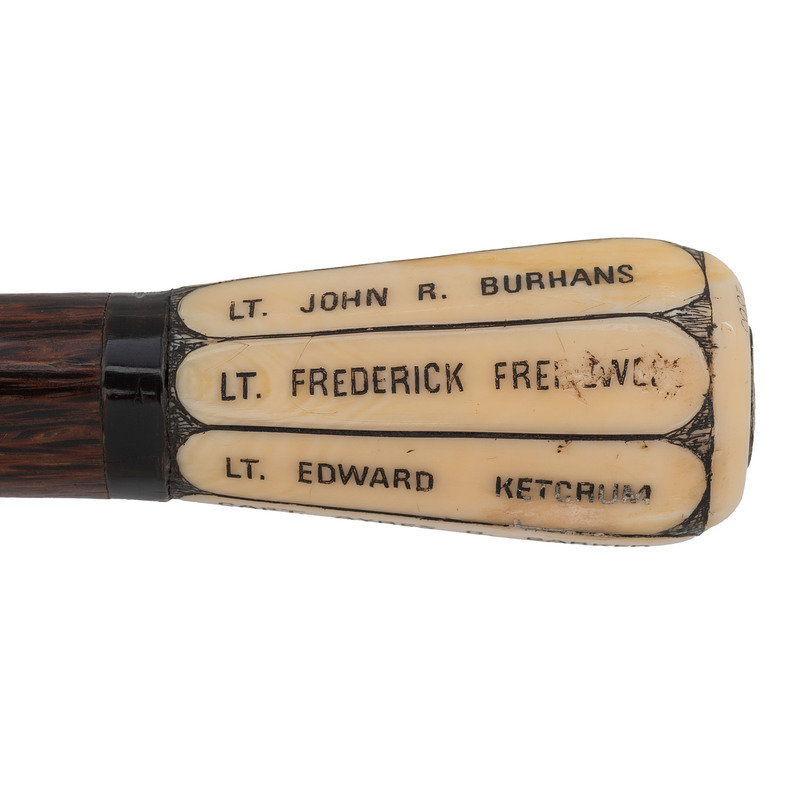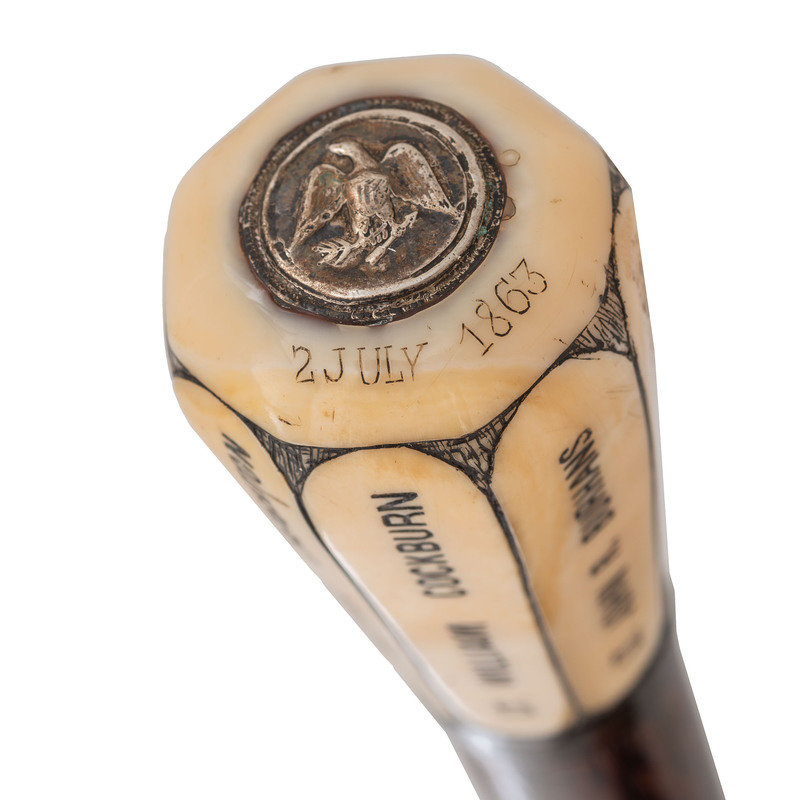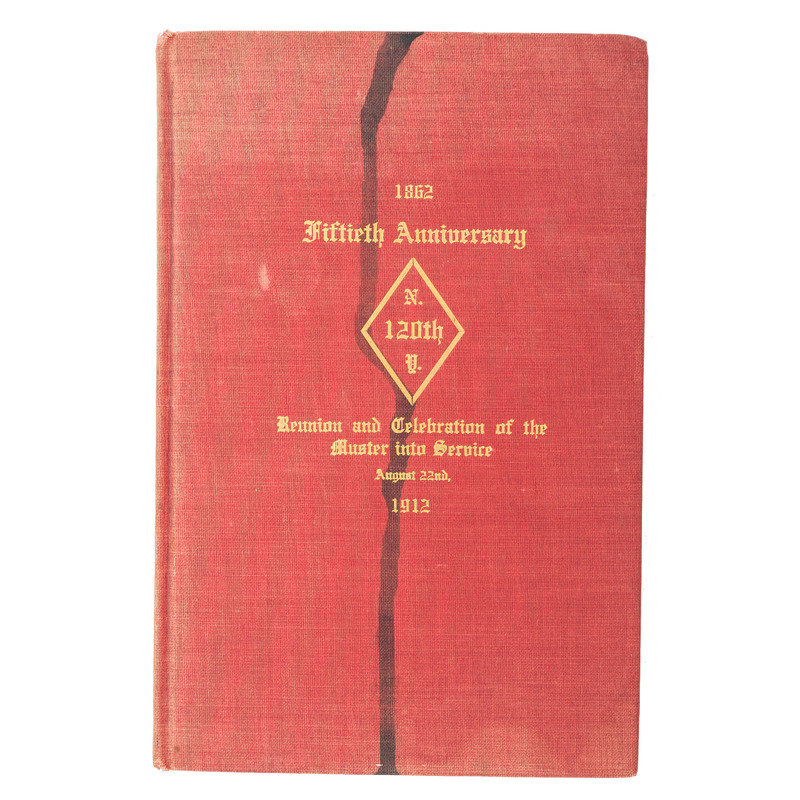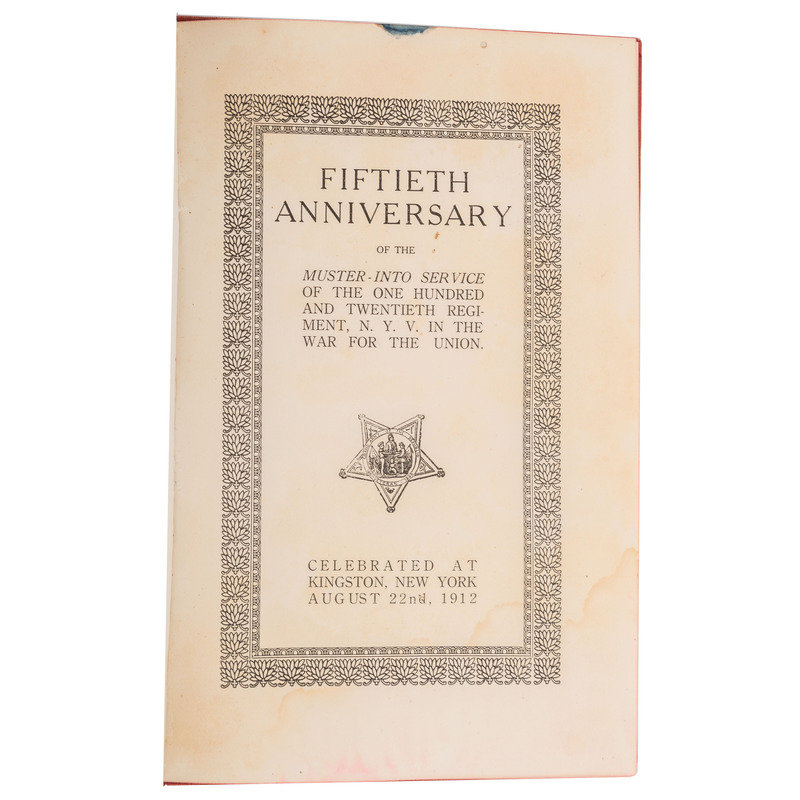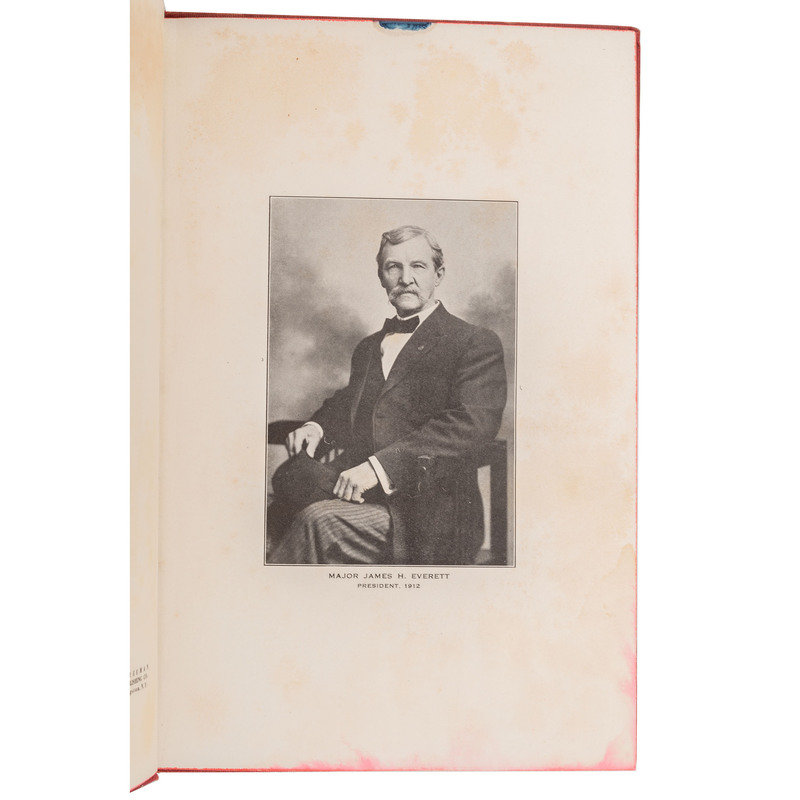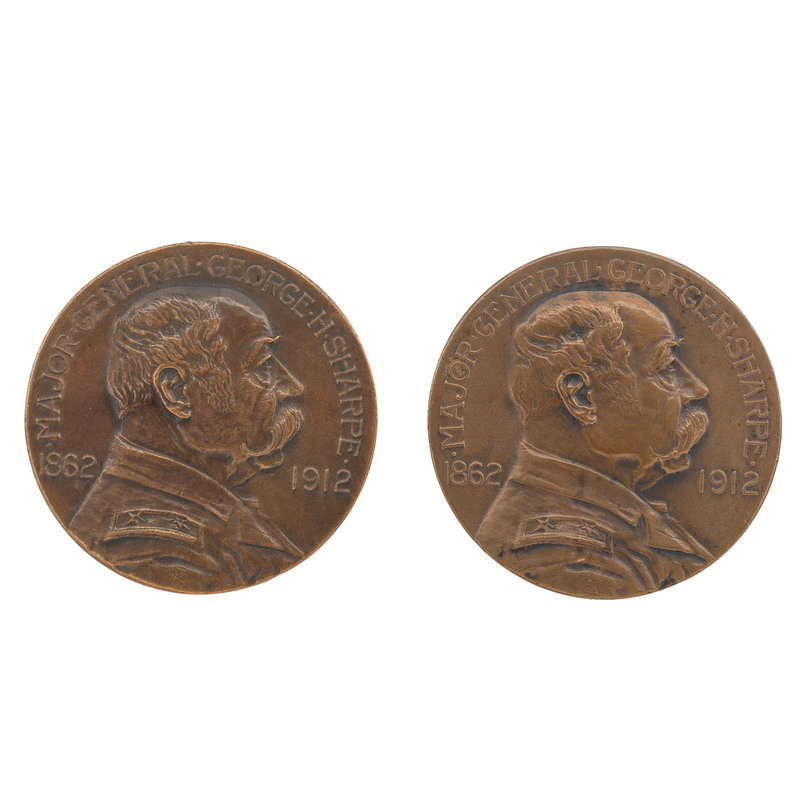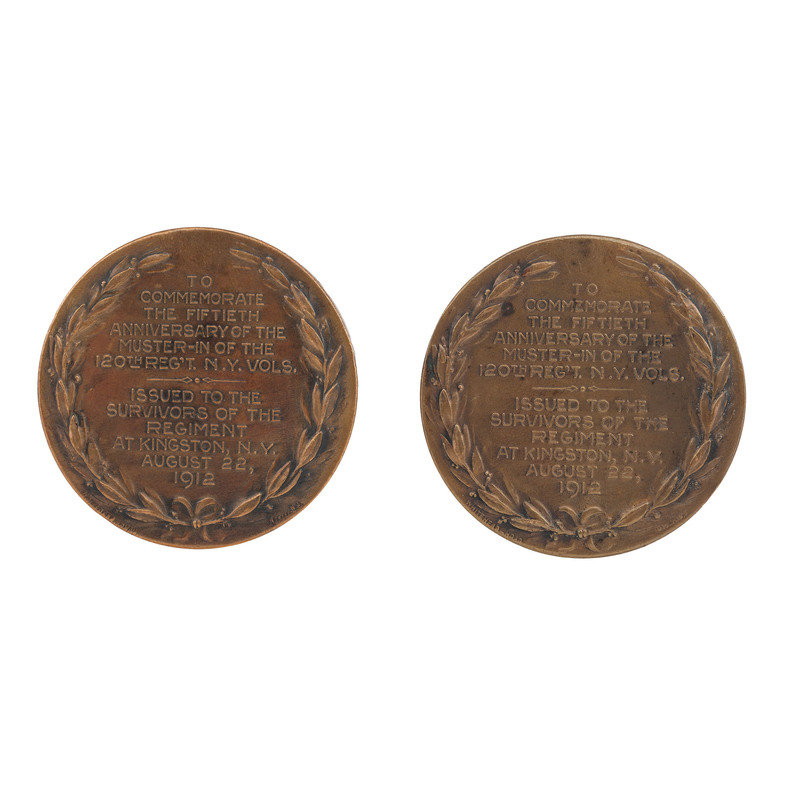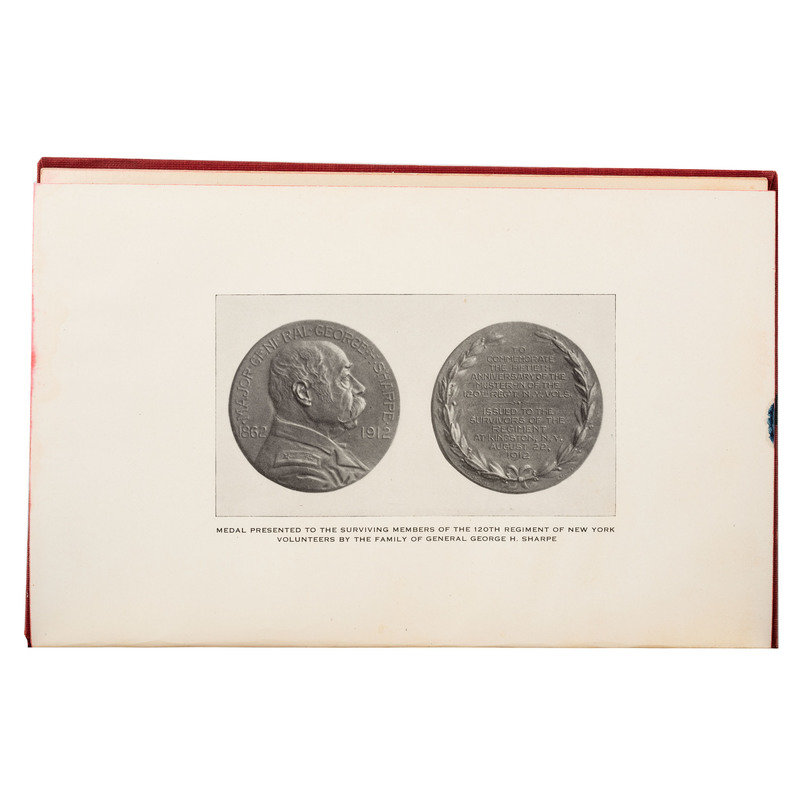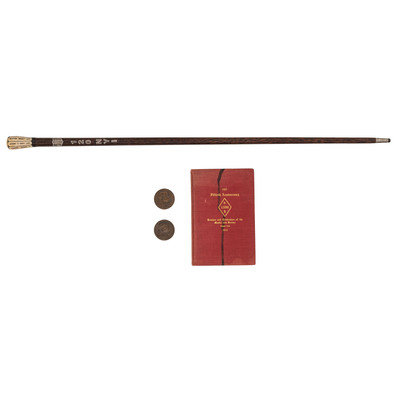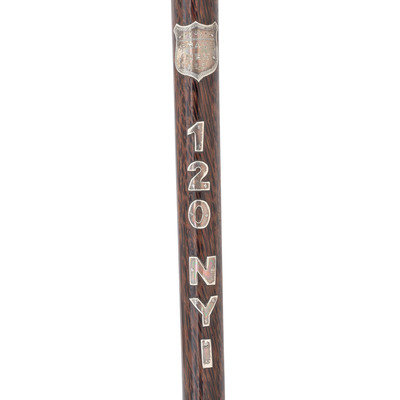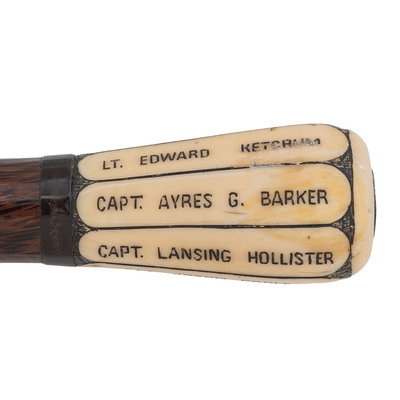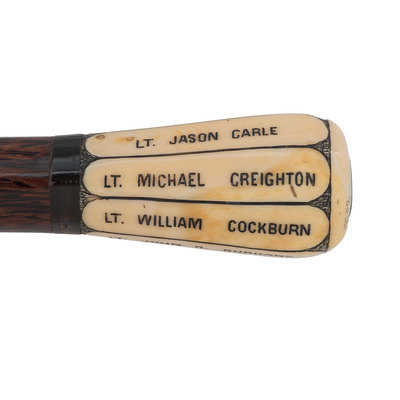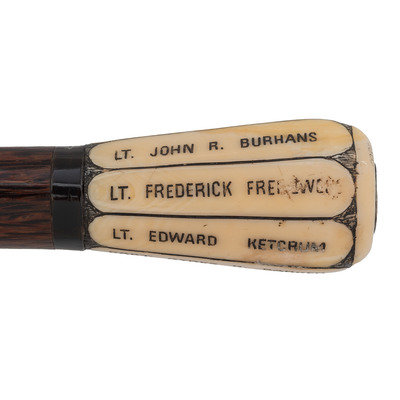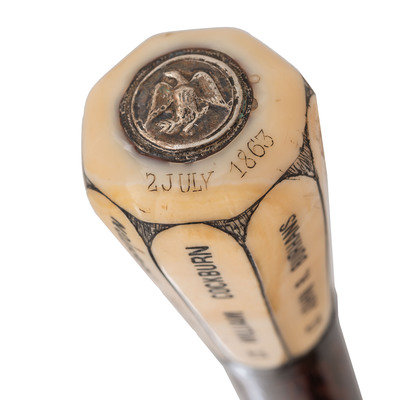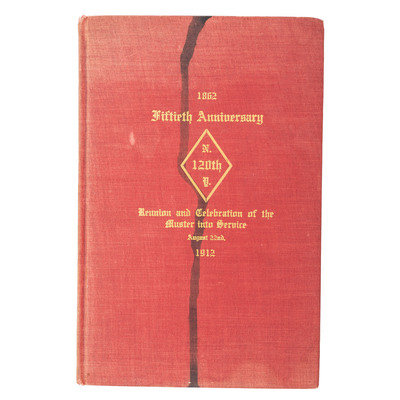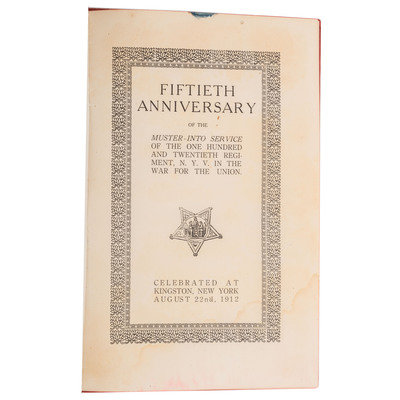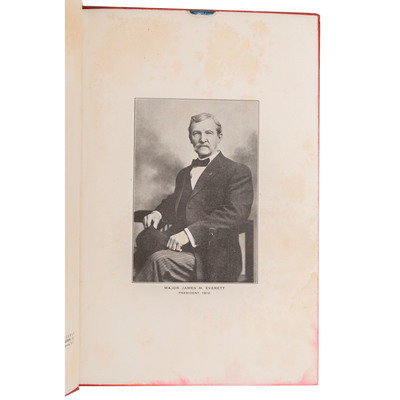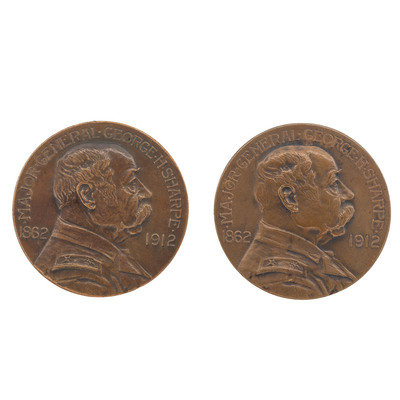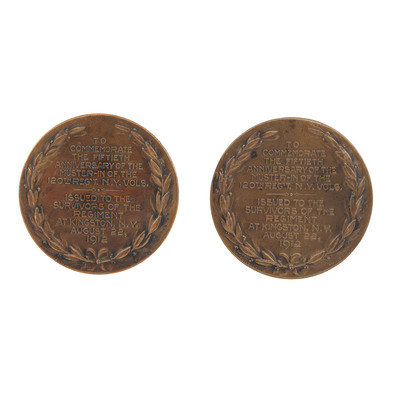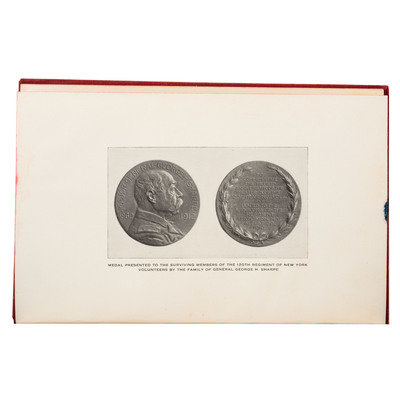Condition Report
Contact Information
Auction Specialists
Lot 1046
Ivory Handled Cane attributed to Major General George H. Sharpe, with Additional Accoutrements
Sale 1351 - Arms, Armor & Militaria Online
Lots Open
Oct 13, 2023
Lots Close
Oct 26, 2023
Timed Online / Cincinnati
Own a similar item?
Estimate
$1,000 -
1,500
Price Realized
$960
Sold prices are inclusive of Buyer’s Premium
Lot Description
Ivory Handled Cane attributed to Major General George H. Sharpe, with Additional Accoutrements
American Civil War
36.5" long. Ivory handled cane with wood shaft, silver ferrule, and an iron heel commemorating the history of the 120th New York Infantry Regiment. The top of the cane has been set with a silver {Eagle Shield} medallion with the date July 2, 1863 engraved on it. Each face of the octagon is engraved with the names of one of the eight officers killed or mortally wounded during the fighting. The names read: CAPT. AYERS G. BARKER, CAPT. LANSING HOLLISTER, LT. JASON CARLE, LT. MICHAEL CREIGHTON, LT. WILLIAM COCKBURN, LT. JOHN R. BURHANS, LT. FREDERICK FREELEWICH, LT. EDWARD KETCHUM. Below this, on the obverse side of the cane is a silver shield engraved BRAVE/MEN/ALL above the silver letters 120 NYI. The reverse side has been struck with a GHS monogram, the initials of the 120ths commander at that battle, then Colonel George H. Sharpe. Also included with the cane are two commemorative coins struck to celebrate the 50th Anniversary of the unit's mustering on August 22nd, 1862. The obverse side shows a profile of Sharpe surrounded by the dates 1862-1912, and the name MAJOR GENERAL GEORGE H SHARPE. The reverse side features two conjoined olive branches with the text TO COMMEMORATE THE FIFTIETH ANNIVERSARY OF THE MUSTERING OF THE 120TH REG'T. N.Y. VOLS. ISSUED TO THE SURVIVORS OF THE REGIMENT AT KINGSTON, N.Y. AUGUST 22, 1912. Also included with the item is a bound program for the anniversary celebration entitled 1862 Fiftieth Anniversary 120th N.Y. Reunion and Celebration of the Muster into Service, August 22nd, 1912. The book itself has a pencil presentation on the inside reading Wilburn L. Hale. from Maj J. H. Everett, Feby. 25th. 1913. Major Everett served as the President of the 120th New York Infantry Regiment's veterans organization during their anniversary.
The 120th New York Infantry was authorized to begin forming on July 14, 1862, with Captain George H. Sharpe appointed as its commander. Prior to the war, Sharpe practiced law, and had served as secretary of the Legation to Vienna in the Austrian Empire from 1851 to 1852. When the war began, he served first as a captain before being requested by the Governor of New York to form a new regiment. By August 22nd, 1862, the new 120th New York Infantry Regiment was mustered in with 900 men in its ranks. The unit left the state of New York two days later to join General Sickles' Excelsior Brigade of the Army of the Potomac. From then on, the 120th New York took an active part in many of the most famous battles in which the Army of the Potomac Engaged. They fought in Fredericksburg, Chancellorsville, and Gettysburg, and continued on until the battle at Appomattox Court House. At Gettysburg, the unit entered the battle on its second day, July 2nd, 1863, and distinguished itself in the difficult fighting that followed. They rallied three times to fight the enemy, and were able to leave the field in good order. But during the battle, the regiment lost 30 killed, 154 wounded, and 19 missing. Eight officers were killed or mortally wounded in that battle alone. Nevertheless, the 120th remained a capable force and continued to fight.
As for its commander, Colonel Sharpe took on new duties in February of 1863 when General Joseph Hooker asked him to form a Bureau of Military Information. Combining the efforts of scouts, analysts, and civilian spies, Sharpe provided the Army of the Potomac with much needed information about the Army of Northern Virginia's movements. His command was later subordinated to General Grant in 1864, and continued to provide information on troop movements gathered from numerous sources. By the end of the war, Sharpe was promoted to Brevet Major General of Volunteers, and returned to New York with his regiment. He continued to practice law, and served in numerous positions ranging from the New York State Assembly, to heading the U.S. Commission to Central and South America. Sharpe kept in touch with the veterans of the 120th, and was represented posthumously at the 50th anniversary by his son, Judge Severyn Sharpe.
The 120th New York Infantry was authorized to begin forming on July 14, 1862, with Captain George H. Sharpe appointed as its commander. Prior to the war, Sharpe practiced law, and had served as secretary of the Legation to Vienna in the Austrian Empire from 1851 to 1852. When the war began, he served first as a captain before being requested by the Governor of New York to form a new regiment. By August 22nd, 1862, the new 120th New York Infantry Regiment was mustered in with 900 men in its ranks. The unit left the state of New York two days later to join General Sickles' Excelsior Brigade of the Army of the Potomac. From then on, the 120th New York took an active part in many of the most famous battles in which the Army of the Potomac Engaged. They fought in Fredericksburg, Chancellorsville, and Gettysburg, and continued on until the battle at Appomattox Court House. At Gettysburg, the unit entered the battle on its second day, July 2nd, 1863, and distinguished itself in the difficult fighting that followed. They rallied three times to fight the enemy, and were able to leave the field in good order. But during the battle, the regiment lost 30 killed, 154 wounded, and 19 missing. Eight officers were killed or mortally wounded in that battle alone. Nevertheless, the 120th remained a capable force and continued to fight.
As for its commander, Colonel Sharpe took on new duties in February of 1863 when General Joseph Hooker asked him to form a Bureau of Military Information. Combining the efforts of scouts, analysts, and civilian spies, Sharpe provided the Army of the Potomac with much needed information about the Army of Northern Virginia's movements. His command was later subordinated to General Grant in 1864, and continued to provide information on troop movements gathered from numerous sources. By the end of the war, Sharpe was promoted to Brevet Major General of Volunteers, and returned to New York with his regiment. He continued to practice law, and served in numerous positions ranging from the New York State Assembly, to heading the U.S. Commission to Central and South America. Sharpe kept in touch with the veterans of the 120th, and was represented posthumously at the 50th anniversary by his son, Judge Severyn Sharpe.
From the Collection of George Oldenbourg
